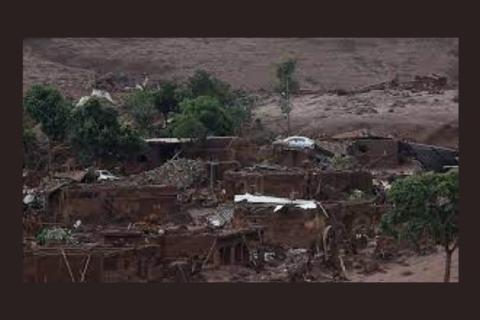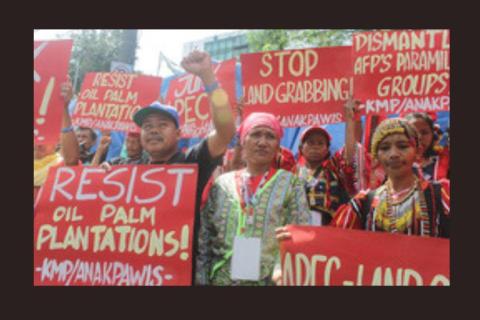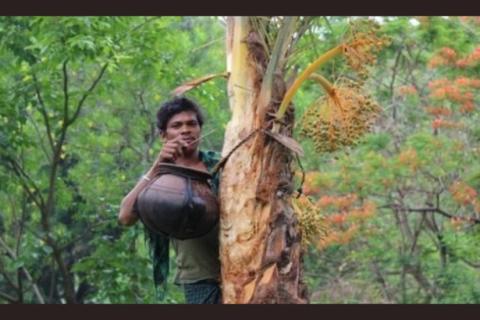A report by some of the Friends of the Earth groups shows how some of the fires that affected Indonesia’s forests in the last months can be traced to companies that supply or are owned by Wilmar International, a company that spurred a dramatic wave of sustainability pledges in the palm oil sector in December 2013. Despite new evidence that the company violates its own ‘no deforestation’ policies, this report sustains how major U.S.
Other information
The report “12 Replies to 12 Lies about Oil Palm monocultures plantations”, which aims at strengthening the struggles of all those who are opposing large-scale oil palm plantations in the global South, is now also available in Swahili y Lingala.
Access PDFs:
Swahili:http://wrm.org.uy/fr/files/2013/06/12_responses_Swahili.pdf
A declaration to be launched during the UN climate negotiations aims to draw attention to the need to keep fossil fuels in the ground and unburned, while supporting a just transition toward a clean energy future. The declaration recognizes that “the extraction, transportation and consumption of fossil fuels has caused severe damage to the earth, air, water, and all forms of life; and is the number one contributor to climate change and massive species extinction.
An article from “The Guardian” highlights how despite fire raging across over 5,000 km in Indonesia, the media “dominated by corporate press releases, photo ops and fashion shoots” is not paying attention. This catastrophe is having severe effects on many levels. Children are being prepared for evacuation on warships. Populations of species, including threatened species, are going up in smoke at an untold rate.
The market-based and techno-fix solutions on the table for the 2015 UN climate talks are diverting attention from the real culprits and delaying real action. Most political leaders have been happy to choose measures that suit existing business models and continued corporate profit-making. There’s little prospect of the deal that’s being cooked up in Paris delivering anything for the climate.
The India Climate Justice Collective has released the fifth issue of the “Mausam” magazine. This time the focus is on India’s Intended Nationally Determined Contribution, submitted to the UN Climate Convention in October, to which they say: “We think it was not nationally determined...
The collective efforts of various organizations from Africa, America, Europe and Asia have resulted in the study booklet: “Peasant Agroecology for Food Sovereignty and Mother Earth, experiences of La Via Campesina”. From their distinct territories, 10 articles share experiences in agroecology training, organizing, production and marketing of healthy foods.
On November 5th, one of the largest environmental disasters in the history of Brazil occurred. Two dams operated by mining company Samarco burst in the state of Minas Gerais, dumping sludge with the company's toxic waste in an area where hundreds of families lived. The disaster killed dozens of people, destroyed hundreds of homes, and destroyed the life of one of Brazil's major rivers, the “Río Doce.” This in turn has affected the water supply of hundreds of thousands
In early November, a gathering of peasants and indigenous peoples from Mindanao, Bohol and Palawan, denounced the government’s plan to devote eight million hectares of land to oil palm by 2023. Oil palm plantations in the Philippines cover almost 55,000 hectares. The Philippine Coconut Authority’s (PCA) 2014 to 2023 road map has identified about a million hectares for potential oil palm farms.
The Unist’ot’en camp in North-Western British Colombia, Canada, has since 2011 been maintaining a check-point to control access through their territory to stop government and industry plans to build several gas and oil pipelines.
The Indian government is producing many proposals to make more profit from the country’s forests. These include wider application of their huge Compensatory Afforestation Fund and private leasing plans.











